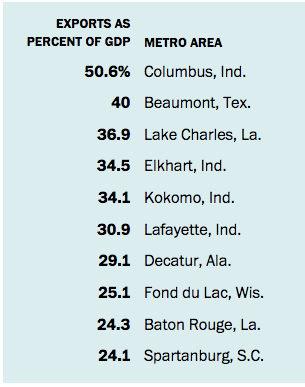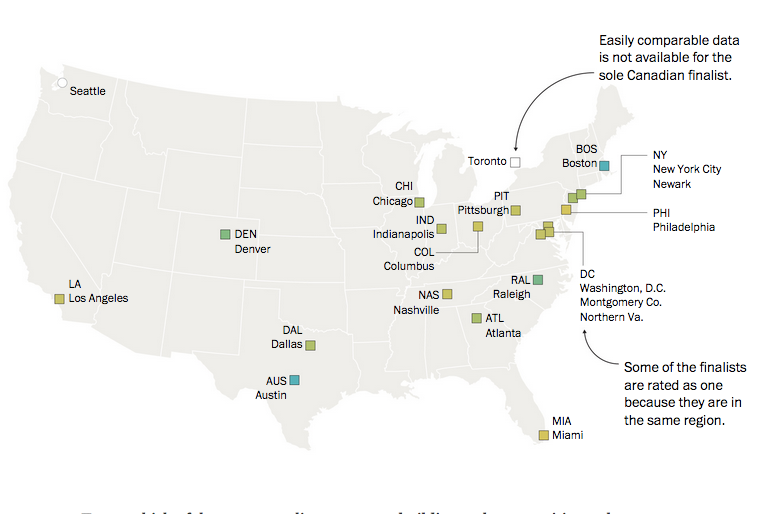. . .
The Brookings data ranks the cities that are most dependent on exports and with the most export-related jobs. Small Midwestern cities that export auto parts and other manufactured goods appear high on the list, as do coastal cities that export chemicals and petroleum byproducts.

Topping the list is Columbus, Ind. — the home base for engine-maker Cummins Inc. and other automotive manufacturers, and the hometown of Vice President Pence. About half of its local gross domestic product, a broad measure of economic activity, is tied to exporting abroad.
The geographic distribution of trade has interesting implications for politics, and for Trump. Brookings calculates that the counties that voted for Democratic presidential candidate Hillary Clinton actually produced most of America’s exports in goods and services — about 58 percent in 2015, compared to 42 percent for Trump.
[Why Trump’s trade plan could be a tax on the poor]
However, because Clinton voters are concentrated in large, economically diverse cities, exports actually account for a greater proportion of economy in counties that voted for Trump than in counties that voted for Clinton. That means Trump voters would likely end up feeling the heaviest effects from changes to trade, Parilla says.
According to Brookings estimates, exports make up 13 percent of local GDP in counties won by Trump, compared to 10 percent in counties won by Clinton.
Manufacturing Jobs Are Returning To Some Places. But These Jobs Are Different.
Six Maps That Show the Anatomy of America’s Vast Infrastructure




